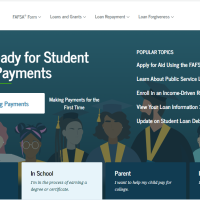Federal law protects consumers from a variety of deceptive or fraudulent credit and debt practices, or practices that compromise your right to privacy. Know your rights. If you suspect your rights have been violated, use the contact information provided below to file a complaint.
Fair Debt Collection Practices Act (FDCPA)
The law outlines consumers' rights to dispute overdue bills placed with collection agencies, an original creditor using a different name to collect the debt, or a lawyer collecting a debt for a creditor.
The FDCPA stops debt collectors from using unfair, abusive, or deceptive practices to collect overdue bills. Some illegal practices include:
- Communicating with a third party to discuss the debt
- Inappropriate communications with the debtor such as contacting a person at work when the person has told them they cannot receive calls there
- Harassment or abuse such as threatening bodily harm or using profane language
- Making false or misleading statements such as threatening criminal action when it is not a possibility
The Act also requires collectors provide people with the following information when they are attempting to collect a debt:
- Amount of debt
- Name of original creditor
- Disclosure stating that you have 30 days to dispute the debt
- If you dispute the debt, they must send you verification of its validity
How Do I Report a Fair Debt Collection Practices Act Violation?
Contact the Federal Trade Commission and your states Attorney General Office. You will need the following to report the violation:
- Document the date, time and name of the agent you spoke to
- Document what occurred during the call or interaction
- Provide any proof you have such as papers, mailings or tape recordings (if legal in your area)
Fair Credit Reporting Act (FCRA)
This Act gives you the right to learn what credit information is being distributed about you to credit reporting agencies. Everyone is entitled to receive a free copy of their credit report once a year from each of the three major credit reporting agencies; Equifax, Experian or TransUnion. The law also establishes procedures for correcting errors in your credit record and protects your privacy. Find out more about getting Your Credit Report and Correcting Mistakes by clicking here.
How Does the Fair Credit Reporting Act Protect Me?
FCRA protects you from having inaccurate or obsolete information on your credit report.
- It regulates how long information can remain on your credit report. While good credit information can stay on your report indefinitely, there are rules regarding how long negative information can show
- It regulates who can look at your credit report. Only people or entities with a "permissible purpose" may access your credit report. These can include a credit lender, landlord, employer, insurance agency and utility company
Report FCRA violations to the Federal Trade Commission (FTC); the FTC oversees all three of the major credit reporting agencies.
Fair Credit Billing Act
The Fair Credit Billing Act regulates all credit and charge card billings related to:
- Extending credit to someone not authorized to use your card
- Extending credit for property of services you didn't receive
- Failure to credit your account correctly
- Extension of credit for items returned because they were defective
- To enact the Fair Credit Billing Act you must write a letter to the creditor within 60 days of the date on the incorrect statement, which includes your name, account number and any supporting documentation (sales slip, etc.)
The creditor must acknowledge the letter within 30 days and correct the error or explain why they won't within two billing cycles.
Truth in Lending Act
The Truth in Lending Act (TILA) covers many different areas of lending. It has rules that apply to credit card lending (open-ended loans), mortgage lending (closed-ended loans) and other types of loans.
Under TILA a person’s liability for a lost or stolen card is
- $0 after it has been reported missing
- Up to $50 if you notify the bank within two business days of knowing the card was missing
- Up to $500 if you fail to notify the bank within two business days, but do notify them within 60 days of knowing the card was missing
TILA also lets you cancel a loan secured by your home (but not used to purchase or build the home) until midnight of the third day after you signed the contract. This typically applies to second mortgages, home equity lines of credit and home improvement loans.
In addition TILA requires all lenders disclose specific information about the mortgage, credit card or other type of loan you are requesting. The information that must be provided by the lender is:
- The interest rate you will be charged to borrow the money
- The length of the loan (mortgages or other closed ended loans)
- The total amount you are borrowing (closed ended)
- Any payment penalty fees
- Any other fees the lender may impose
If the lender violates any of the above regulations contact your state Attorney General’s Office for information on how to file a complaint. For credit cards, collection agencies, or credit bureaus you should also notify the Federal Trade Commission at www.ftc.gov or 1-877-382-4357 or by mail at:
Federal Trade Commission
Consumer Response Center
CRC-240
600 Pennsylvania Avenue, NW
Washington, DC 20580




